| |

Traditions, folklore, history and more. If it's Irish, it's here. Or will be!
"People will not look forward to posterity who never look backward to their ancestors."
-Edmund Burke

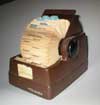


Quotes
Library: Books, Movies, Music
Prints & Photos
Poetry
Jokes


Shops Ireland
Bunús na Gaeilge
(Basic Irish)
Circle of Prayer
Blessings
Did You Know?
Himself/Herself
Write to Us
Readers Write..
Links/Link to Us
Advertise with us
Awards & Testimonials
Submissions Guide

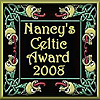
|
|
|
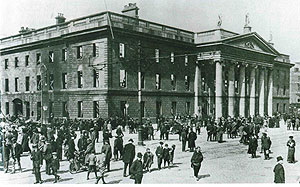 The 1916 Proclamation - Have you read it? The 1916 Proclamation - Have you read it?
by Seamus Cashman
At 12.45 pm on 24 April 1916, Easter Monday, on the steps of the General Post Office (the GPO) on Sackville Street, now O’Connell Street, Dublin, Patrick Pearse read the following Proclamation:
POBLACHT NA h-ÉIREANN
THE PROVISIONAL GOVERNMENT
OF THE IRISH REPUBLIC
TO THE PEOPLE OF IRELAND
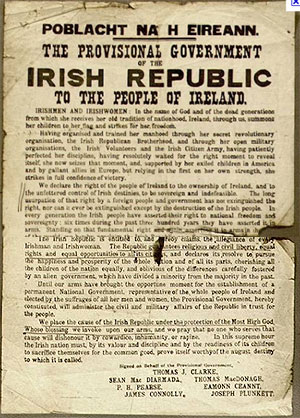 IRISHMEN AND IRISHWOMEN: In the name of God and of the dead generations from which she receives her old tradition of nationhood, Ireland, through us, summons her children to her flag and strikes for her freedom. IRISHMEN AND IRISHWOMEN: In the name of God and of the dead generations from which she receives her old tradition of nationhood, Ireland, through us, summons her children to her flag and strikes for her freedom.
Having organized her manhood through her secret revolutionary organization, the Irish Republican Brotherhood, and through her open military organizations, the Irish Volunteers and the Irish Citizen Army, having patiently perfected her discipline, having resolutely waited for the right moment to reveal itself, she now seizes that moment, and supported by her exiled children in America and by gallant allies in Europe, but relying in the first on her own strength, she strikes in full confidence of victory.
We declare the right of the people of Ireland to the ownership of Ireland and to the unfettered control of Irish destinies, to be sovereign and indefeasible. The long usurpation of that right by a foreign people and government has not extinguished the right, nor can it ever be extinguished except by the destruction of the Irish people. In every generation the Irish people have asserted their right to national freedom and sovereignty; six times during the past three hundred years they have asserted it in arms. Standing on that fundamental right and again asserting it in arms in the face of the world, we hereby proclaim the Irish Republic as a Sovereign Independent State and we pledge our lives and the lives of our comrades-in-arms to the cause of its freedom, of its welfare, and of its exaltation among the nations.
The Irish Republic is entitled to, and hereby claims, the allegiance of every Irishman and Irishwoman. The Republic guarantees religious and civil liberty; equal rights and equal opportunities of all its citizens, and declares its resolve to pursue the happiness and prosperity of the whole nation and of all its parts, cherishing all the children of the nation equally, and oblivious of the differences carefully fostered by an alien government, which have divided a minority from the majority in the past.
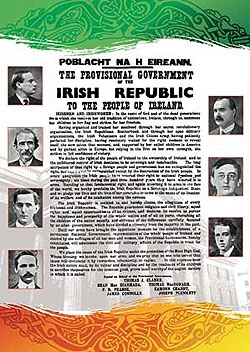 Until our arms have brought the opportune moment for the establish- ment of a permanent National Government, representative of the whole people of Ireland and elected by the suffrages of all her men and women, the Provisional Government, hereby constituted, will administer the civil and military affairs of the Republic in trust for the people. Until our arms have brought the opportune moment for the establish- ment of a permanent National Government, representative of the whole people of Ireland and elected by the suffrages of all her men and women, the Provisional Government, hereby constituted, will administer the civil and military affairs of the Republic in trust for the people.
We place the cause of the Irish Republic under the protection of the Most High God, Whose blessing we invoke upon our arms, and we pray that no one who serves that cause will dishonour it by cowardice, inhumanity, or rapine. In this supreme hour the Irish nation must, by its valour and discipline, and by the readiness of its children to sacrifice themselves for the common good, prove itself worthy of the august destiny to which it is called.
*
[Signed on behalf of the Provisional Government by Thomas Clarke; Sean Mac Diarmada; Thomas Mac Donagh; P.H.Pearse; Eamonn Ceannt; James Connolly; Joseph Plunkett]
When Pearse finished reading The Proclamation, James Connolly shook his hand and there was some scattered cheering. The rebels handed out copies of The Proclamation among the crowd. One copy was put at the foot of Nelson’s Pillar. The poet, Stephen McKenna, who was there, later wrote that he felt sad for Pearse because the response from the crowd was chilling. No wild hurrahs, no scenes of excitement as when the French stormed the Bastille.
Some people stood awhile watching flags fly on the roof of the GPO — a green flag at the Princes Street corner and a tricolor at the Henry Street corner. Most were indifferent and went on their way, unaware of the significance of what was about to begin …
Photo & Image Credits:
Proclamation Document: Awesome Stories
Proclamation with photos of signers: Sinn Fein Shop
GPO Post Office: General Michael Collins web site
|
|
Fri, Sep 27, 2024
 The Galway Hooker The Galway Hooker
This unique vessel, with its distinctive curved lines and bright red sails, originated in the village of Claddagh. During the 19th century, hookers supported a significant fishing industry and also carried goods, livestock and fuel. Seán Rainey is remembered for building the last of the original boats, the Truelight, for Martin Oliver who was to become the last king of the Claddagh; as king, he was entitled to white sails on his boat. Since the mid seventies, many of the old sailing craft which were on the verge of extinction have been lovingly restored and new ones have been built. During the summer months they can be seen at festivals such a Cruinniú na mBád - the Gathering of the Boats - in Kinvara.
Click for More Culture Corner.
A book to buy, to beg, or to borrow. For here we have that rare thing, a piece of literature springing from the same natural impulse which makes a bird on a branch in April time give out a sprinkle of a song.
Irish Independent
All the customer reviews on amazon give it 5 stars. We're anxiously waiting for our copy to arrive!
Click here for 20yrs a'Growing
Note: The cover illustration is called "Launching the Curragh" by Paul Henry and the original is in the National Museum of Ireland in Dublin.
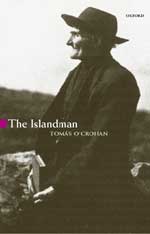
The Islandman
by Tomás O'Crohán
A valuable description of a now vanished way of life, the author's sole purpose in writing this book was in his own words, 'to set down the character of the people about me so that some record of us might live after us, for the like of us will never be again.'
Click here for The Islandman.
The Queen of Gaelic story-tellers reflects on the days of her youth, and, while here were `clouds of sorrow', helping to lift them was the friendship she found in the community, which `was like a little rose in the wilderness'.
Click here for An Old Woman's Reflections.
|
|
|
|
|




 The Galway Hooker
The Galway Hooker